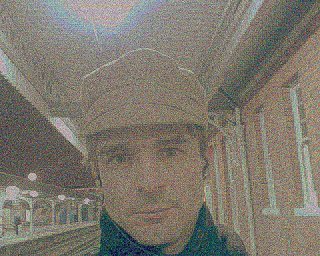Power contructing and constituting the individual in Foucault (though don’t get too mesmerised by this) – [point is relations of force that exist in the minutiae]
How things happen, rather than why – this is an historical perspective
Herkunft – what does Herkunft have to say about class and the development of parties out of organised communities?
Small small events and their effects (see my Ch. 2 p.8) – even things like drink, sleep, diet, misunderstandings etc can be important.
Enstehung – states of play, not final moments or culminations; continuations of violence via rules (these are not settlements – which, incidentally, is how I have up to now seen stable political regimes…)
History not a handmaiden to philosophy, and neither can it be made one to politics (see my Ch. 2, p.10).
Therefore I cannot examine the development of political parties in the context of the party as it looks now. It has to be as it is at each point, each crystallising moment.
NB - Some interesting parts in Panebianco’s preface to challenge.
Power is not held but it is produced & reproduced in relations – it operates through people and within institutions, although it does not actually reside in either. It produces strategic situations and individual subjectivities. It should not be understood in the terms of an institution, but once understood it can be used to analyse an institution (which is a strategy of power). [Q – what are the particular practices that emerge in political organisations…? That may also have spread & swarmed in some way? Or have spread from elsewhere… in fact probably from the places that F saw disciplinary power emerging from.]
Resistance is part of the process: pluralities, mobile and transitory
The tension between F & W is the level of analysis and this can be used creatively.
In particular F leads us away from the ‘negative’, prohibitive, juridical approach to power that is deep-rooted in the Western tradition and in Weber too. Power is in the latter’s work a restriction, a censor on human action. It is anti-productive.
Subscribe to:
Post Comments (Atom)

No comments:
Post a Comment